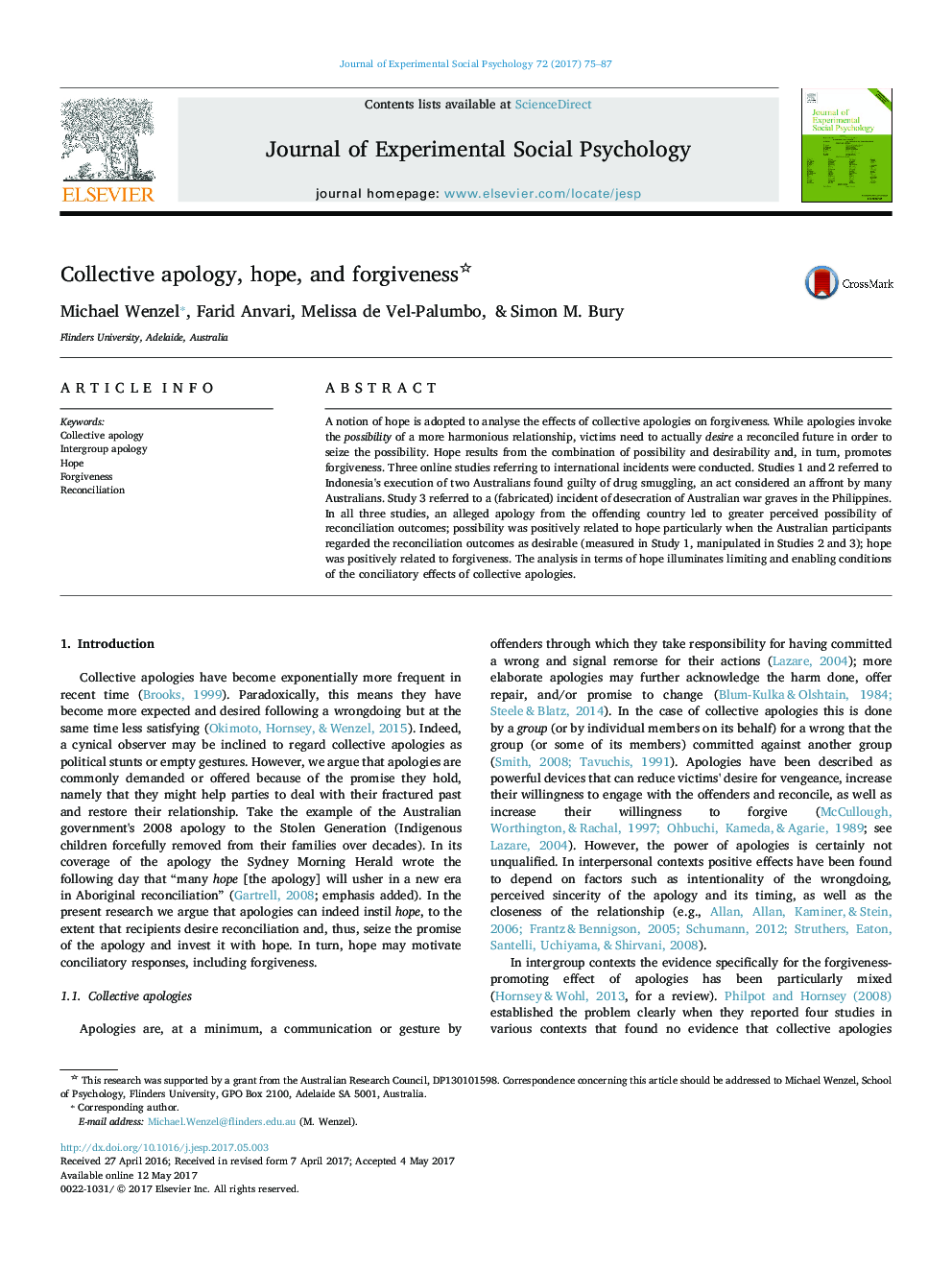| Article ID | Journal | Published Year | Pages | File Type |
|---|---|---|---|---|
| 5045667 | Journal of Experimental Social Psychology | 2017 | 13 Pages |
â¢Collective apologies can elicit hope for reconciliation, thus promoting forgiveness.â¢Apologies increase the perceived possibility of a positive, reconciled relationship.â¢Victim group members desiring a positive relationship invest possibility with hope.â¢An analysis in terms of hope sheds light on the challenges to collective apologies.
A notion of hope is adopted to analyse the effects of collective apologies on forgiveness. While apologies invoke the possibility of a more harmonious relationship, victims need to actually desire a reconciled future in order to seize the possibility. Hope results from the combination of possibility and desirability and, in turn, promotes forgiveness. Three online studies referring to international incidents were conducted. Studies 1 and 2 referred to Indonesia's execution of two Australians found guilty of drug smuggling, an act considered an affront by many Australians. Study 3 referred to a (fabricated) incident of desecration of Australian war graves in the Philippines. In all three studies, an alleged apology from the offending country led to greater perceived possibility of reconciliation outcomes; possibility was positively related to hope particularly when the Australian participants regarded the reconciliation outcomes as desirable (measured in Study 1, manipulated in Studies 2 and 3); hope was positively related to forgiveness. The analysis in terms of hope illuminates limiting and enabling conditions of the conciliatory effects of collective apologies.
